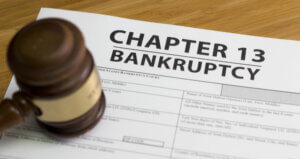How much do you know about the differences between bankruptcy dismissal vs. discharge? Read on to learn more on the subject.

Do you know the difference between bankruptcy dismissal vs. discharge? Dismissal and discharge mean two completely different things, but people still confuse the two terms. You will most likely hear both terms when you file, so keep reading to learn the difference.
Different Types of Bankruptcy
To get started, there are different types of bankruptcy in terms of consumers. If you qualify for Chapter 7, this wipes all your debts clean. Chapter 11 and Chapter 13 require that you pay back some of your debts over a period of time; the bankruptcy court determines this timeline and oversees your case.
Determining which chapter you qualify for is not always a straightforward process, so you should hire a professional bankruptcy attorney to help you navigate this process.
Paying Your Creditors
After your bankruptcy case is filed and approved, you make your payments to a trustee designated by the court. This trustee also oversees your case.
They manage the payment disbursement to your creditors during the lifespan of your case, which is typically three to five years for a Chapter 13 case. A Chapter 11 case may take longer, depending on the case.
What Is Bankruptcy Dismissal?
If your bankruptcy case is dismissed, you remain responsible for the debt. You do not seek a dismissal when you file for bankruptcy. It is a negative outcome. One of the prime reasons you work with an attorney is to avoid dismissal.
Why does a dismissal occur? It can happen if the paperwork isn’t filed properly or if it is incomplete. If someone does not provide all the required information to the court when filing bankruptcy, the case can also be dismissed.
Another reason for dismissal is if the debtor does not meet all requirements related to pre- and post-bankruptcy education, like credit counseling.
If you submit false information, whether on purpose or by mistake, you are at risk for dismissal. Even if you submit false information unknowingly, the court may believe you did it intentionally and charge you with bankruptcy fraud.
If you fail to meet your payment obligations under a Chapter 13 case, your case may also be dismissed.
Basically, when a bankruptcy case is dismissed, you are back to the beginning. You do not have the court’s protection from creditors, and they may begin contacting you for payment. Your creditors can also sue you if you don’t make an arrangement to settle any outstanding debt.
You want to avoid dismissal at all costs. If anything changes in your financial situation, like unemployment, you should also talk to your trustee and an attorney. For example, if you filed Chapter 13, your unemployment may qualify you for Chapter 7 for your remaining debt to be dissolved.
What Is Bankruptcy Discharge?
Discharge in bankruptcy happens when the bankruptcy court grants debt elimination. This means the creditor can no longer pursue you for debt payment even though you didn’t pay it.
Bankruptcy discharges happen in both Chapter 7 and Chapter 13 cases. However, discharges are limited with Chapter 13. Debtors must pay a portion of the debt over time before the discharge. Discharge can take a few months with Chapter 7. In Chapter 13, discharge can take three to five years.
A bankruptcy discharge is the primary reason people file for bankruptcy in the first place, especially if you qualify for Chapter 7. Discharge gives you the clean slate you want from your debt and allows you to begin rebuilding your finances and credit without debt weighing you down.
Discharge is the opposite of dismissal in terms of bankruptcy. Discharge means you met all the obligations under your bankruptcy agreement. When your case is finalized, your debts are paid.
With discharge, you will be on the road to financial recovery. However, a bankruptcy stays on your credit reports for seven to ten years, depending on which Chapter you filed. Your credit score will go down, but over time, it will weigh down your score less and less.
You can begin applying for new lines of credit after discharge. However, you most likely won’t get the best rates. You may want to apply for credit for people with lower credit scores to avoid rejection.
Closed Without a Discharge
Sometimes there is a third outcome for bankruptcy that is not a discharge or dismissal—closed without a discharge.
Cases are closed without discharge when the debtor does not complete the required debtor education required as a condition of discharge. The court may also close your case without discharge if you failed the last step for getting rid of debt.
Your filing may not have been filed timely. This is why it’s important to follow all the steps of your case and work with your attorney if any issues arise.
Get Help With Bankruptcy Dismissal vs. Discharge
Filing for bankruptcy can be a trying time. Knowing the difference between bankruptcy dismissal vs. discharge will help you reach your goal of a fresh financial start. Having your debt discharged is your ultimate goal and you need to complete all court requirements to meet this goal.
Hiring an experienced bankruptcy attorney helps you avoid having your bankruptcy case dismissed. If you have more questions about this process or would like to learn more about filing bankruptcy, contact Husker Law at 402-415-2525 today for a consultation. We will work closely with you to help you achieve your goals.





